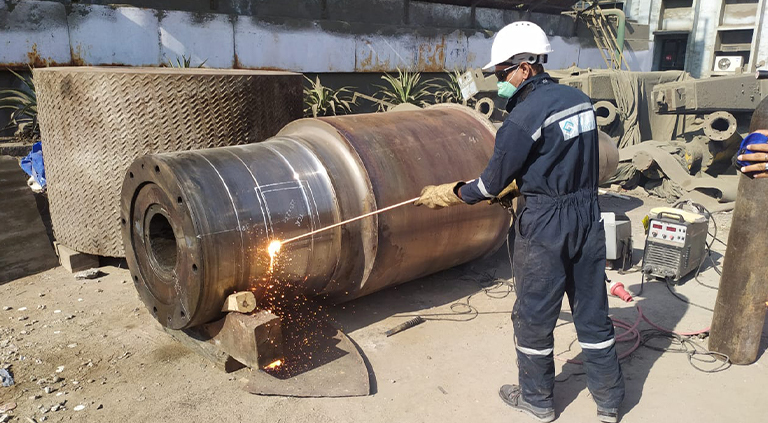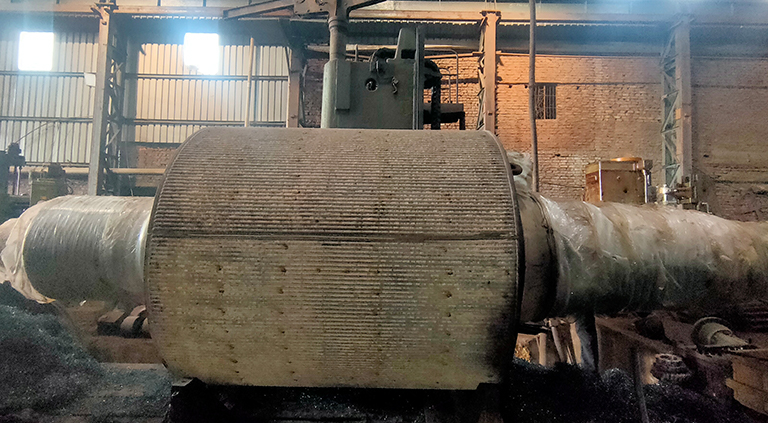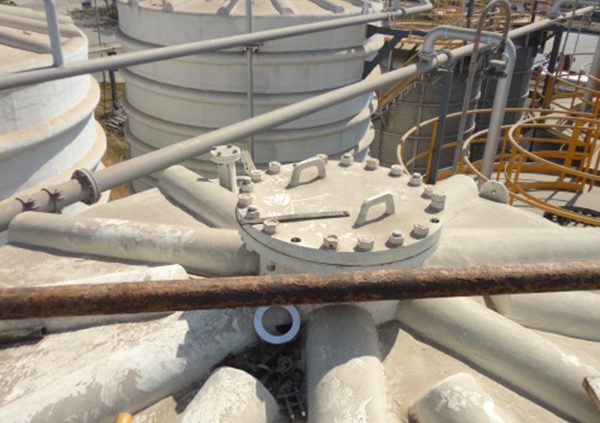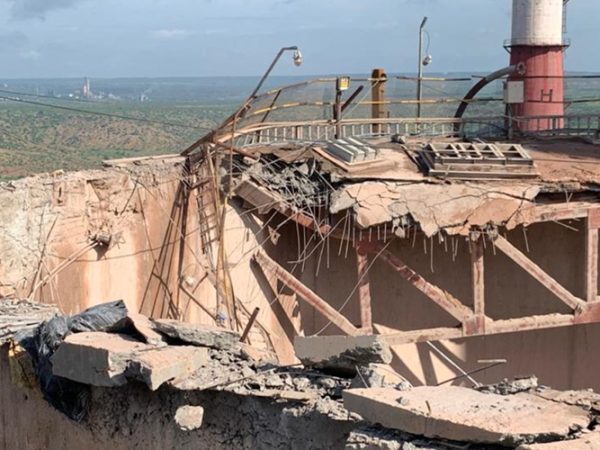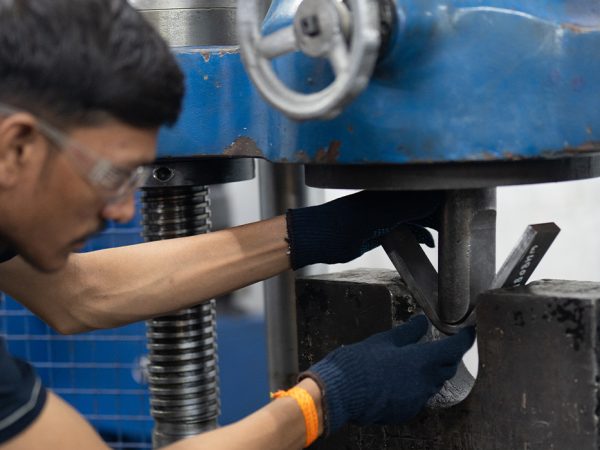Downtime can be a nightmare for any industry. When something fails — whether it’s a machine part, a structural component, or a welded joint — the consequences can be costly and even dangerous. That’s where Failure and Root Cause Analysis steps in as a vital solution. This investigative process not only identifies what went wrong but also how and why it happened, helping you prevent similar incidents in the future.
Amongst the Best Failure Investigation Company in India, TCR Advanced offers accurate Failure and Root Cause Analysis, failure testing services, Fire Damage Assessment, and Engineering Critical Analysis to support asset safety, operational continuity, and regulatory compliance.
TCR Advanced prides itself for its deep sectoral knowledge and has compiled best practices from over 1800 failure investigation assignments. These success stories include major projects in manufacturing and metallurgical failures on ASME boilers, pressure vessels, gas turbine engine components, oil and gas transmission pipelines, food processing equipment, heat exchangers, medical supplies, refineries, petrochemical plants, aircraft/aerospace, offshore structures, industrial machinery, weldments, and ships.
What Is Failure Investigation and Analysis?
Failure Investigation is a systematic approach to determine the root causes of material, component, or equipment failure. It helps industries understand the physical, chemical, and
operational reasons behind a failure, offering critical insights into how it can be avoided in
the future.
Whether it’s a crack in a pipeline, corrosion in machinery, or unexpected wear and tear inindustrial components, Failure and Root Cause Analysis provides the answers needed to mitigate further risk and improve performance.
This type of analysis is not just about looking at a broken component. It involves deep scientific research, engineering judgment, and a thorough review of design, material, and environmental factors.
Here’s Why Failure Investigation Matters
– Cost Prevention: Identifying and solving problems at their root helps avoid expensive repeat failures.
– Safety Compliance: Failure Analysis plays a key role in protecting employees and the environment.
– Operational Efficiency: By understanding what failed and why, industries can implement better maintenance and monitoring systems.
– Asset Integrity Management & AIOM: Ensures that all assets continue to function within safe operating limits for their expected lifespan.
Importance of Failure Investigation and Analysis
Failure Investigation and Analysis plays a critical role in identifying why a component, system, or structure has failed. Without it, industries face repeated downtime, unsafe operations, and high replacement costs. Whether it’s a fire damage issue, mechanical breakdown, or material defect, understanding the root cause helps prevent future failures and ensures smoother operations.
For industries like oil & gas, power plants, manufacturing, and infrastructure, Failure and Root Cause Analysis is essential for safety compliance, maintenance planning, and minimizing risk. It also helps ensure equipment longevity and process efficiency. Simply replacing a failed part without analysis might temporarily fix the issue, but it doesn’t eliminate the underlying problem.
Benefits of Failure Investigation and Analysis
There are several key benefits of investing in Failure and Root Cause Analysis, especially when working with the Best Failure Investigation Company in India:
– Minimized Downtime: By identifying the exact reason for failure, companies can make targeted repairs and avoid repeated interruptions.
– Improved Safety: Investigating failures prevents accidents, equipment damage, and unsafe working conditions.
– Cost Savings: Instead of frequent replacements, understanding failure mechanisms leads to better maintenance and lower long-term costs.
– Compliance & Reporting: Many industries require detailed failure analysis reports to meet regulatory and audit standards.
– Improved Design & Quality: Learning from failure helps improve product design, material selection, and manufacturing processes.
Additionally, advanced techniques like Engineering Critical Analysis, Remaining Life Assessment, and Asset Integrity Management & AIOM support more informed decision-making, especially in aging infrastructure.
What Are the Steps in Failure Investigation and Analysis?
A thorough Failure and Root Cause Analysis typically includes:
1. Data Collection: Gathering all relevant information, including service history, design documents, material specs, and operational conditions.
2. Visual Inspection: The first step in identifying cracks, corrosion, or deformation.
3. Non-Destructive Testing (NDT): Techniques like ultrasonic, magnetic particle, and X-ray testing to assess internal defects.
4. Fractography & Metallography: Microscopic analysis to evaluate fracture surfaces and material structure.
5. Chemical & Mechanical Testing: To assess the material’s composition and mechanical properties.
6. Environmental Analysis: Understanding the operational surroundings such as temperature, pressure, or exposure to chemicals.
7. Root Cause Identification: Using all gathered evidence, experts determine the exact reason for failure.
8. Reporting & Recommendations: A detailed report is provided along with suggestions to prevent recurrence.
What Types of Failures Investigated by TCR Advanced?
Failure and Root Cause Analysis can be applied to a wide range of issues, including:
Boiler Tube Failure Investigation
Shaft failure investigation
Heater tube failure investigation
Heat Exchanger tube failure
Structural steel failure investigation
Reformer tube failure investigation
Failure investigation of the steam turbine
Failure investigation of a Gas turbine
Automobile component Failure investigation
Bearing Failure investigation
Gear Failure Investigation
Failure investigation of the Boiler tube
These are just some examples. In truth, any unexpected failure that results in damage, loss, or safety hazards warrants a thorough failure analysis.
What Tools Are Used in Failure Investigation?
At TCR Advanced, we use an extensive suite of scientific tools for failure testing services:
– Visual Inspection
– Low Magnification Examination
– Dimension measurement
– Scanning Electron Microscopy (SEM)
– Energy Dispersive X-Ray Spectroscopy (EDS)
– Hardness Testing & Tensile Testing Machines
– Corrosion tests
– Electrochemical testing
– Fractographic & Metallographic Analysis Tools
– Non-Destructive Testing (NDT) Equipment
These tools are crucial in conducting precise Failure and Root Cause Analysis that meets global engineering standards.
What Are the Pros and Cons of Failure Investigation?
Pros:
– Uncover the exact reason for component failure
– Improve design and manufacturing processes
– Enhance product safety and performance
– Comply with legal and regulatory standards
– Support Remaining Life Assessment and future planning
Cons:
– May require downtime to inspect or remove failed parts
– Can be costly if done reactively instead of proactively
– Time-consuming, especially if access to failure samples is limited
Despite these cons, proactive failure analysis is always a smart investment to safeguard your business.
Frequently Asked Questions
Q1: What is failure investigation and analysis?
Failure investigation is a detailed process that identifies how and why a component or
system failed. It uses engineering tools and testing methods to determine the root cause and
suggest corrective measures.
Q2: What industries need failure analysis?
Industries like oil and gas, manufacturing, power generation, aerospace, pharmaceuticals, automotive, and construction all benefit from failure analysis to ensure safety, compliance, and efficiency.
Q3: Where does TCR Advanced offer failure analysis?
TCR Advanced is a trusted name in Failure and Root Cause Analysis. TCR Advanced offers Failure Investigation services across India, including cities like Delhi, Mumbai, Pune, Gujarat, and Chandigarh.
Q4: What tools are used in failure investigation?
A wide range of tools like SEM, Optical Microscope, Digital Microscope, mechanical testing, and NDT equipment are used to conduct accurate failure testing services.
Q5: How long does a failure analysis report take?
The timeline depends on the complexity of the case, but most Failure Investigation reports are delivered within 7 to 28 days.
Conclusion
In a fast-moving industrial landscape, equipment reliability is key. With expert Failure and Root Cause Analysis, businesses can protect their people, preserve assets, and prevent future disruptions. Whether you’re dealing with a critical breakdown or planning preventive action, trust the professionals at TCR Advanced — the Best Failure Investigation Company in India — for world class insight and accurate engineering solutions.
